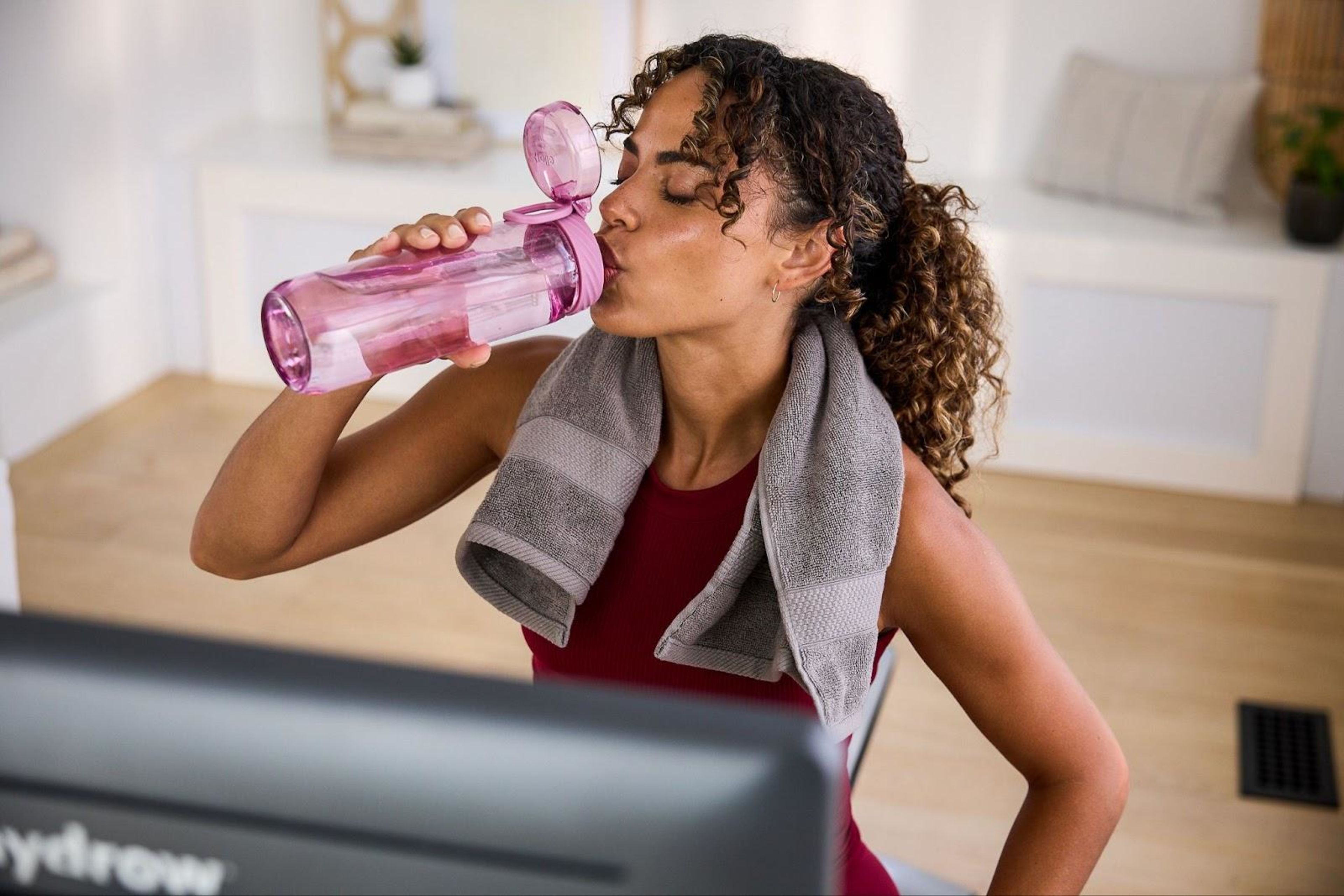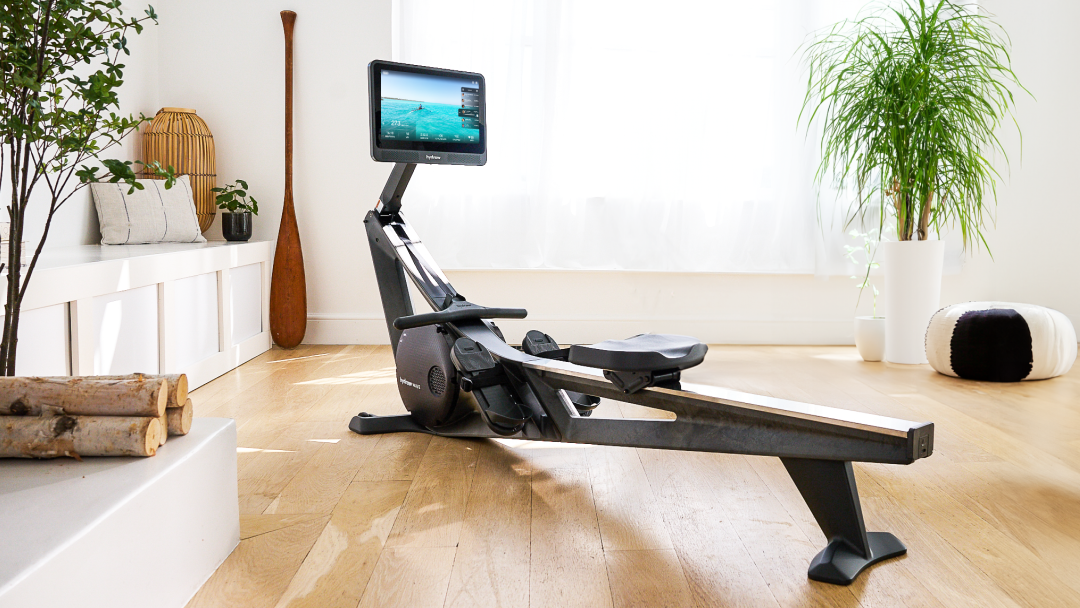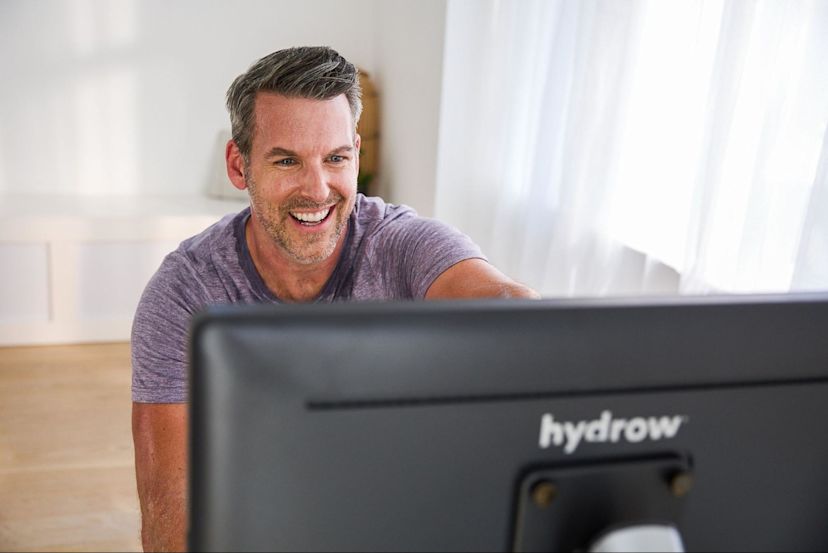Your Rowing Postpartum Guide: Is Rowing Good for Postpartum?

If you are looking to try out a new postpartum workout, you’ve likely come across rowing machines alongside other exercise equipment like treadmills and ellipticals. But if you’ve never rowed before or still feel like you have to work your way up to feeling physically fit again after having a baby, diving headfirst into a new workout type for the first time can feel understandably daunting.
The good news is that not only is rowing postpartum possible, but it’s also a great option if you’re looking to build up your strength, improve your cardio, and burn a ton of calories in a short amount of time.
While choosing to row postpartum is ultimately a decision that should be discussed with your healthcare provider, this blog post will cover:
Let’s get started!
Is rowing good for postpartum?
The answer is a resounding yes! Rowing can be a great postpartum workout to ease your way back into an exercise routine.
After I gave birth to my first child in September and my doctor cleared me to exercise, I decided to give rowing a try—and it was one of the best decisions I could have made for my health, happiness, and sense of self as I got used to being a new mom and turned my attention back to my body.
Below, we’ll discuss 10 benefits of using a rowing machine postpartum, including:
Rowing workouts are quick and efficient
Rowing workouts can be done at home—and on your time—with an at-home rowing machine
Rowing helps build upper- and lower-body strength
Rowing is both a strength and cardio workout
Rowing makes it easy to control your exertion level
Rowing can help boost your mental well-being
Rowing is low-impact
Rowing strengthens your core
Rowing torches calories
Rowing is great for cross-training
We’ll dig into each benefit of rowing postpartum below:
1. Rowing workouts are quick and efficient
As any new parent knows, free time is fleeting when you’re trying to squeeze a slew of essential tasks in the span of one 20-minute nap. If you want to prioritize exercise amid the endless piles of dishes and laundry, you need a workout that can get a lot done in a short amount of time.
Each rowing stroke works a whopping 86% of the muscles in your body, which means you can work both your upper- and lower-body muscles in a short amount of time, such as a short 20-minute workout. Of course, 20 free minutes isn’t nothing when you’re taking care of a new baby, but it’s a lot easier to carve out than an hour-long gym workout.
Whether you wake up early, rely on a partner to take care of the baby, sneak in workouts during nap times, or have your baby hang out next to you as you row, a rowing machine workout offers a tremendous bang for your buck—put in just a little bit of time, and you’ll get a lot back!

Experience the most immersive and efficient total-body workout with Hydrow.
2. Rowing workouts can be done at home—and on your time—with an at-home rowing machine
Having a rowing machine at home makes it significantly easier to make time to exercise. Commuting to and from the gym adds unnecessary time to your workouts, and the timing of gym classes can unfortunately be too rigid to accommodate the fluctuating schedule of a new baby.
I had big dreams of going back to my gym’s Zumba classes after I gave birth. However, I quickly realized that successfully aligning my son’s nap and feeding schedules with their once-a-day class would take nothing short of an utter miracle.
Instead, I found I was way more likely to squeeze in a workout when my rowing machine was just a room away. I put on my workout clothes and filled up my water bottle before my son went down for his nap so I could jump right on my rowing machine the second he closed his eyes.
Other times, he came down to the basement with me in his bouncer and watched me row. He actually seemed to enjoy the music and watching me go back and forth on my rowing machine (Bonus: It’s a great eye-tracking exercise for babies!).
3. Rowing helps build upper- and lower-body strength
Let’s face it: Babies get heavy! And they just keep getting heavier! And heavier!
Rowing is considered a full-body workout, with your back, shoulders and arms all worked in the rowing stroke. This in turn strengthens the upper-body muscles that are typically neglected in other forms of cardiovascular exercise.
When my tiny son became not-so–tiny, I was definitely grateful for the time I logged on my rowing machine. It made it a lot easier to carry him (and his hulking car seat!) around without needing to switch arms or take a break as often.
4. Rowing is both a strength and cardio workout
Another reason that rowing is considered such a highly efficient workout type is the fact that rowing machines offer both a cardio and strength workout. The resistance element in rowing helps you build your strength, while the continuous, repetitive motion of rowing increases your heart rate.
Given the limited time you have to work out, it’s great to be able to tackle both the cardiovascular and strength component of working out by rowing.
Related Blog: Rowing While Pregnant: What You Need to Know
5. Rowing makes it easy to control your exertion level
Whether you’re a seasoned fitness enthusiast looking to get back in the game or a total beginner, your rowing workout will really only be as hard as you make it. Rowing machines provide the ability to row at your own personal intensity as you apply varying levels of resistance and control the number of times you go up and down the slide (known as your stroke rate).
With each rowing stroke, you control the resistance with how hard you push your legs. So, you have the power to ease your way in, then increase your resistance as your strength and endurance improves over time.
6. Rowing can help boost your mental well-being
Getting into a regular rowing routine postpartum can have a massive impact on your mental health by reducing stress, boosting your mood, enhancing your self-confidence, and improving your sleep—all of which are crucial in the early months of parenthood.
During my postpartum period, I felt more in touch with myself and proud of my accomplishments on the days I found the time and energy to row. And even though I was technically rowing completely solo at home, I felt connected to the outside world because my Hydrow rowing workouts were filmed in beautiful locations from around the globe. It really broke up the monotony of the day, and I felt that listening to the Hydrow Athletes leading my workouts carried over into my day-to-day life.

Did You Know?
Over 90% of Hydrow members are still active one year later.
7. Rowing is low-impact
Another fantastic thing about rowing postpartum is that it is a low-impact workout, making it easier to adopt when your body is still getting used to exercising again after pregnancy. Our bodies go through a lot of changes during and after pregnancy, and low-impact exercises can make it easier for you to adapt to those changes as you exercise.
Compared to higher-impact workouts like running and jogging, rowing lessens your chance of injury or joint pain as you get up and running. There’s nothing worse than pulling your lower back or getting shin splints from a workout when you’re hauling yourself in and out of bed in the middle of the night!
Related blog: Are Low-Impact Workouts Effective?
8. Rowing strengthens your core
When you have good posture and use proper form on a rowing machine, you’ll engage your core throughout the rowing motion, which can help strengthen your abdominal muscles and improve core stability. Rebuilding my core strength was a major priority for me after I gave birth, so I was happy that I had a way to work my abs that didn’t require doing a thousand sit-ups in the gym day after day.
While burning belly fat was definitely on my mind, I was more excited about how much stronger my core felt while I was playing with and carrying my son (and his car seat and diaper bag and lunch box and backpack and bouncer…).
Related Blog: Is Rowing Good for Abs?
9. Rowing torches calories
It’s hard to talk about postpartum exercise routines without talking about fat and calorie burning, as many postpartum women do feel some level of pressure to “lose the baby weight” and returning to their pre-pregnancy weight. Combined with a healthy diet, rowing is a great way to burn a lot of calories in a short amount of time because it is a full-body strength and cardio workout.
If you’re looking to manage your weight after having a baby, rowing machine workouts can be an efficient way to burn more calories.
10. Rowing is great for cross-training
Whether you’re a runner, cyclist, soccer player, or any other fitness fan, rowing can easily be done in tandem with other workout types to work muscles you don’t typically use or muscles you didn’t really use pre-baby but are now absolutely essential.
By targeting various parts of your body with cross-training, you can also prepare yourself for other types of exercise that you would like to engage with postpartum. Mixing up your workout types can also help you prevent overuse injuries as your body gets used to exercising, promote muscle balance, and keep your workouts interesting and engaging.
How to stay safe while rowing postpartum
Exercising after having a baby takes some extra care, so be sure to follow these postpartum safety tips:
Talk with your doctor: Healthcare professionals typically clear you to exercise six weeks after your birth, but be sure that you get the all-clear before diving into your workout—and that you personally feel ready. This is particularly true if you had a C-section, pelvic floor issues, or any other complications that could affect your body’s recovery time.
Start slowly: While it’s certainly tempting to go all out when you’re finally OK to exercise again, it’s vital to start slow and listen to your body. There will be plenty of time to push yourself, but the very beginning of your workout journey is the time to ensure you aren’t putting yourself at risk of injury.
Warm up and cool down: I’ll admit it—I would more-than-occasionally ditch my warm-ups and cool-downs in the interest of time before I had a baby, and this became even more common after I had my baby. But taking the extra couple of minutes to get your body ready for your workout and to recover after can be a major way to avoid future injury.
Focus on proper form: Rowing in particular requires proper form in order to maximize your workout and avoid injuries. Familiarize yourself with proper rowing form ahead of your first workout and pay particular attention to your body as you start exercising.
Take breaks: Again, taking breaks is a hard sell when you’re trying to cram in a workout. But it’s very important to give your body time to recover when it needs it. Take some deep breaths, have some water, stretch out your muscles, and get back at it!
Monitor your heart rate: To avoid pushing yourself so hard that you injure yourself, check your heart rate periodically. Check out our blog, “What Should Your Heart Rate Be When Working Out?” to see if you’re in the right zone.
Be kind to yourself: You may not feel as physically fit as you were before you became pregnant—and that’s okay! Even if working out is harder than you’re used to, be proud of yourself for showing up and not too hard on yourself.
The best postpartum rowing workouts
If you’re looking for postpartum rowing workouts to kick off your exercise program, check out the following Hydrow workouts that are specifically tailored toward beginners:
1. 15-Minute Foggy Conditioning Row in Florida
2. 10-Minute Steady-State Rowing Workout on the Charles River
3. 10-Minute Endurance-Building Rowing Workout in Los Angeles!
4. 10-Minute Rowing Workout With Pink Skies in Boston
5. River Thames, England | 10-minute Rowing Workout
6. 10-Minute Cool-Down Rowing Session Next to the Majestic Charles River
7. 5-Minute Cool-Down Rowing Workout at the Fox Glacier in Alaska
Is rowing postpartum good for you? Final thoughts
If you are looking to mix up your postpartum workout routine, rowing can be a great option for its calorie-burning, muscle-strengthening, and cardio-boosting potential.
If you’re interested in investing in a rowing machine for your home, be sure to check out Hydrow. Our state-of-the-art rowing machines are the perfect addition to any home gym, giving you an immersive and total-body workout in just 20 minutes a day.
Hydrow’s extensive library of workout content is led by our team of world-class and Olympic Athletes and filmed in stunning locations around the world. Whether you’re looking to do a rowing workout or cross-train with yoga, Pilates, and circuit training, you’ll be transported to stunning global destinations that keep you motivated to come back again and again.

Explore Hydrow
Learn more about how you can transform your fitness routine with a rowing machine.




